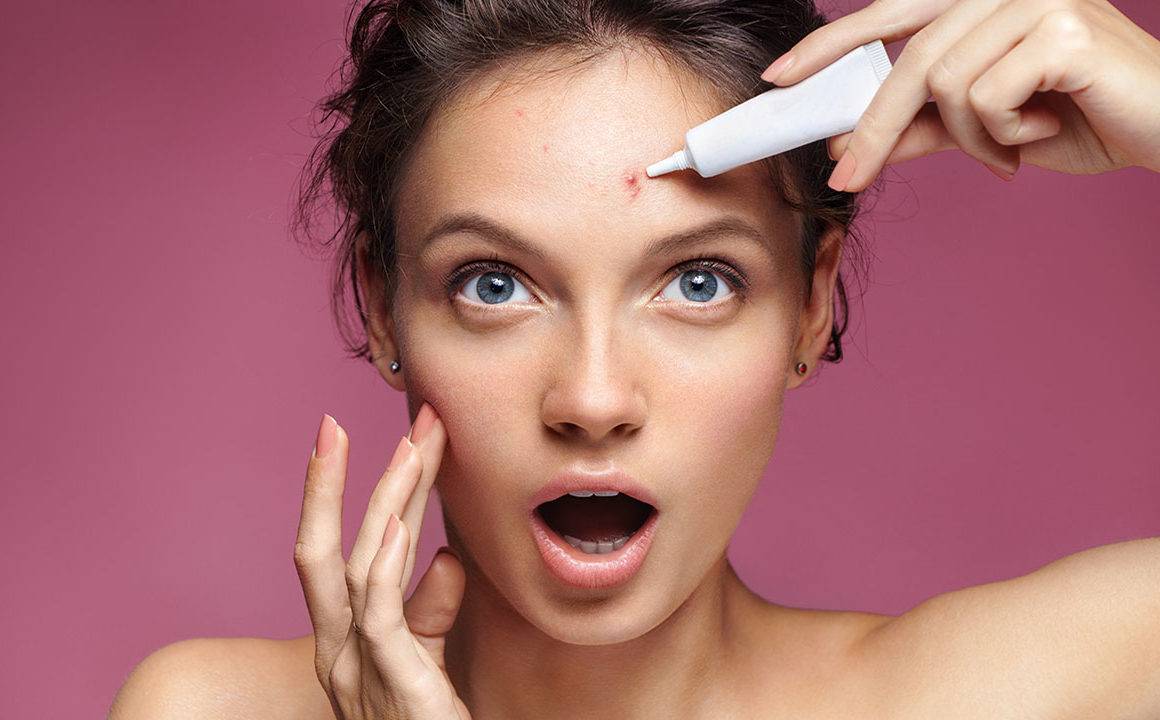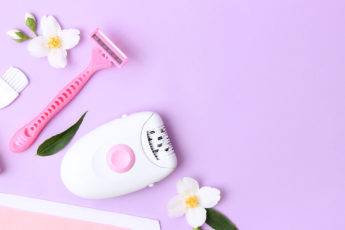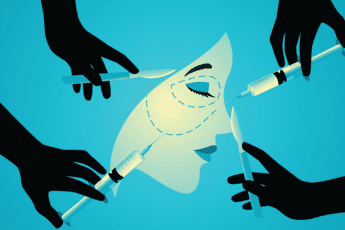8 Tips for Dealing With Acne (at Any Age)

Acne affects up to 50 million Americans a year, making it the most common skin condition in the United States. About 85% of people ages 12 to 24 will experience minor acne at some point in their lives, but adults in their 30s, 40s, and even 50s can still develop persistent acne spots.
What is Acne, and What Causes it?
Commonly occurring on the face, acne is a skin condition that causes blackheads, whiteheads, cysts, and pimples to form under or on the skin. Although diet and genetics can contribute to acne formation, our hormones, oil production, and certain skin products can make it worse.
Since clogged pores can make acne more prominent, adhering to a basic skincare routine can help prevent minor flare-ups. However, skincare alone won’t make severe, fungal, nodule, or cystic acne go away entirely, nor will it prevent blemishes caused by stress or medications.
How to Handle Acne Regardless of Age
Whether you’ve recently gone through puberty or you’re nearing 40, there are plenty of things you can do to reduce acne production and scarring. Use these 8 tips to prevent new breakouts.
1. Use Products With Acne-Fighting Ingredients
Ingredients like alpha-hydroxy acids (AHAs), benzoyl peroxide, tea tree oil, sulfur, salicylic acid, and retinoids have anti-inflammatory and anti-bacterial properties that can reduce acne. You can find products that use these ingredients in almost any form, from serums to lotions to topicals.
2. Consider Getting a Personalized Prescription
Sometimes acne can be so severe that only medications or personalized skincare plans will treat it. Dermatologists like Nava MD will start your skincare journey with lotions and creams, but medicines like Accutane may be necessary if nothing else decreases your skin irritation.
3. Avoid Greasy Foods and Skin Products
Heavy lotions, hair pomades, creams, and waxes can increase acne production. Foodservice cooks may also have a lot of acne because they’re routinely in contact with grease. Unhealthy foods also cause skin irritation, especially if you touch your face before washing your hands.
4. Don’t Pick Your Skin or Wear Tight Clothing
If you wear tight clothing that doesn’t offer a lot of airflow, like helmets, hats, sweatbands, jeans, and some sportswear, you could wick sweat onto your skin or cause the fabric to rub. While both can lead to more acne, picking your sores can further clog your pores and lead to scarring.
5. Try Birth Control Pills (for Women)
Women who produce more testosterone than average or suffer from fluctuating hormones will have more acne than those that don’t. Some women can stabilize their testosterone production by taking an oral contraceptive. In fact, plenty of women have cured their acne using it.
6. Move to a Humid/Dry Environment
Simply moving to control your acne isn’t in everyone’s budget, but there’s evidence that suggests you can reduce your acne by changing environments. Not only will you possibly get away from city pollution, but you’ll also be able to reduce or increase oil production in your skin.
7. Put Your Hair Up When Exercising
If you have long hair and it gets wet from sweat, leaving it loose could cause skin irritation. Since you’re moving and jumping a lot, your sweaty hair will constantly hit your face, neck, and shoulders, depending on length. Make sure to always put your hair up when exercising.
8. Do Your Best to Control or Reduce Stress Levels
Stress increases the hormone cortisol, which can cause acne to flare. While there isn’t much you can do to reduce current work or school stress; you can try to control it. By exercising, meditating, or spending time with your hobbies, you’ll decrease your stress levels significantly.
Share via:





Leave a Comment